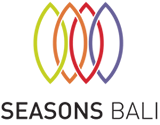What do you do when your smartphone becomes an addiction worse than the substances you’re trying to wean out of your life?
Let’s face it — we’ve all been there. Mindlessly scrolling through Instagram at 2am, comparing our life in shambles to other people’s highlight reels. For women who are in recovery, this digital rabbit hole can be especially perilous.
The average person touches their phone 96 times a day. That’s one every 10 minutes of waking time. But for women who are wrestling with addiction or in the early stages of recovery, social media can become yet another way to check out — even serving as a kind of escape that is nearly as toxic as the substances they’re trying to dodge.
Why Women Face Different Digital Challenges in Recovery
Here’s something that few people discuss: Women experience social media differently from men. Research is clear that women are more likely to use social platforms for emotional connection and validation. We’re comparing ourselves more, and we’re more sensitive to social rejection on the internet.
While in addiction recovery, those two sets of tendencies can add up to a vicious storm. When you’re already feeling vulnerable and isolated and questioning your worth, social media can magnify every insecurity. That sponsored post for wine? Triggering.
Those are his party pics from last weekend you’re looking at? A remembrance of what you feel like you’re missing.
The comparison trap is real. Though men might scroll past a post about someone’s shiny new promotion, women are more prone to falling into thoughts like “I shouldn’t be doing better by now” or “Everyone else has it all figured out that I do.”
The Hidden Dangers of Digital Dependency
Social media dependence is characterised by alarming parallels to drug addiction. Both activate dopamine in the reward centre of the brain. Both result in tolerance — it takes more and more to give you the same high.
And both can experience withdrawal symptoms if removed. This neurological similarity between the two types of addiction is supported by research from the National Institute on Drug Abuse.
For women in female rehab programs, recognising these parallels is crucial. You might be clean from drugs or alcohol, but if you’re spending six hours a day scrolling through feeds, are you really in recovery?
Signs Your Social Media Use Is Problematic:
- Checking your phone first thing in the morning and last thing at night
- Feeling anxious when you can’t access social media
- Comparing your recovery journey to others online
- Using social platforms to avoid difficult emotions
- Staying up late scrolling instead of sleeping
- Feeling worse about yourself after using social media
Sound familiar? You’re definitely not alone.
Why Gender-Specific Addiction Recovery Matters Online Too
Women’s addiction treatment has progressed to acknowledge that we have particular hurdles to triumph – our trauma histories, the societal pressures, relational dynamics and co-occurring mental health disorders. The same surely holds for our digital lives.
Women are also more likely to suffer online harassment, cyberbullying and image-based abuse. We are inundated with images of impossible beauty and life expectations. This digital pressure can be particularly difficult to handle during recovery, when self-esteem is already fragile.
Conventional treatment for addiction may tell you to “just put your phone down,” which isn’t realistic in today’s society. Instead, gender specific addiction recovery strategies recognize that we need plans and tactics-yes they should be as simple as brunch in the park to address our realities, not oppose them.
The Social Media Triggers That Derail Recovery
Recovery is not just about avoiding substances — it’s about building a life that no one will want to escape from. Social media can be a terrain of triggers that make this more complicated than necessary.
- Party Culture Glorification: It’s a lot easier to drink with the temptation of endless “wine o’clock” posts and champagne stories making sobriety seem like Randy Marsh’s balls after he watched the Shamwow infomercial.
- Perfectionism Pressure: Curated feeds are giving the impression that your messy, real recovery isn’t good enough
- FOMO Overload: Watching friends at events you’re skipping leads to loneliness and anxiety (learn more tips on staying sober around others).
- Numbing out digitally: Clicking mindlessly instead of using substances as an emotional escape.
- Sleep Sabotage: Nighttime screen usage can interfere with sleep, elevating the risk of relapse.
These triggers aren’t always obvious. You tell yourself you’re “staying connected,” but that innocent scroll may be working against your recovery.
How to Set Healthy Digital Boundaries, and Stick to Them
Boundary setting is not about turning into a digital hermit. It’s about using technology with purpose instead of letting it own you.
Here are hacks that really work for women in recovery:
Start With Awareness
Keep track of your usage for week before you change anything. Built-in screen time features are available on most phones. You may be surprised to learn that you’re spending and astounding 4-5 hours or more a day on social media without really knowing it!
The Morning Rule
No checking social media for the first hour of the day. Use this time to implement some of your own recovery rituals instead – meditation, journalling, getting in touch with people in your treatment support system. Unless someone else’s content is truly making you happy, beginning your day with it will likely make you feel reactive instead of proactive.
This morning ritual is critical especially in the first 30 days of your sobriety; the habits we create early on can set our foundation and babysit us back to health.
Curate Your Feeds Ruthlessly
Unfollow accounts that make you feel worse about yourself or your recovery.
This includes:
- Party lifestyle accounts
- Accounts that glamorise substance use
- People who trigger comparison or negative feelings
- News accounts that increase anxiety
Instead, follow accounts that inspire your recovery, share educational content, or simply make you smile.
Create Phone-Free Zones
Establish physical spaces where phones aren’t allowed – your bedroom, dining table, or therapy session space. This helps break the automatic reach-for-phone habit.
Use Technology to Support Recovery
Social media isn’t all bad.
Use it strategically to support your healing:
- Join private recovery support groups
- Follow therapists who share helpful content
- Connect with others in similar situations
- Document your own progress (privately or publicly – your choice)
The 24-Hour Rule
Before posting anything about your recovery or mental health struggles, wait 24 hours. Often, what feels urgent to share in the moment might be something you want to keep private after reflection.
How Professional Treatment Addresses Digital Wellness
“Digital wellness” channels are a part of any quality women addiction treatment programs today. At centers focused on female rehab programs, therapists work to help clients see how technology connects with their mental health overall.
This might include:
- Recognizing our own trigger patterns for why and how much we use social media
- Developing healthy technology habits
- How to use devices mindfully, and not out of impulse
- Building communities of care outside of computer screens
- We also need to address the causes of the excessive use of social media
The best programs don’t simply tell you to uninstall apps – they help you understand why you’re drawn to them in the first place. Frequently, problematic use of social media is just a symptom of underlying loneliness, anxiety or trauma that needs to be treated in therapy.
The Connection Between Real-World Community and Digital Boundaries
Part of the reason social media can become so addicting, for many people anyway, is that it fills in a gap where real connection should be. When you’re by yourself and/or feeling alone, those digital interactions can feel like your only connection to a community.
That’s where holistic addiction treatment is so helpful. Other programs are focused on group therapy, peer dynamics and a variety of community-focused activities designed to help you mend your ability to connect with the real world. Once your real life social needs are being met, you no longer crave the validation from online as much.
This sense of community is especially crucial in the field of treatment for women. Women seeing other women who have gone down the path, shattered and made stronger.
Beyond Recovery: Building a Healthy Digital Life
Recovery isn’t just about stopping destructive behaviours – it’s about creating a life worth living. Your relationship with technology should support that vision, not undermine it.
Think about what you actually want from your digital life. Connection? Information? Entertainment? Creativity? Once you’re clear on your intentions, you can make more conscious choices about how you spend your screen time.
Some women find it helpful to schedule specific times for social media use, treating it like any other activity rather than a constant background presence. Others prefer to designate certain days as “digital detox” days to reset their relationship with technology.
The key is finding what works for your unique situation and recovery goals.
Red Flags: When Digital Habits Need Professional Help
And in some instances, social media problems are the tip of the psychological iceberg, reflecting underlying and more serious mental health needs that require professional input. The following indications may mean that you need to reach out for help:
Panic caused by their inability to put up a status on social media:
- Extreme mood swings from crazy comments on the internet
- Using social media to harm themselves (looking at triggering material)
- Complete sterilization with the exception of digital contact
- Does not work without constant digital stimulus
- Direct relapse cues associated with the use of social media
There’s quite a bit of hope in therapy for these problems, especially when you’re participating in a more comprehensive treatment plan that respects the overlap between digital wellness itself and recovery.
Moving Forward: Your Digital Recovery Plan
Establishing healthy digital boundaries is not about perfection — it is about progress. Begin with baby steps: the phone in another room at night, or a 24-hour social media break once a week.
Recovery looks different for everyone, and that’s O.K. If you’re coming to grips with addiction as well as problematic social media use, there’s no need for you to figure this out alone. By seeking professional treatment, you can gain the tools to cope with all modern recovery has to offer.
Ready to take the next step? Get in touch with Seasons Bali and discover our full spectrum women only programs. We realize that post recovery these days come with digital issues and we are here to help you heal in all areas.





